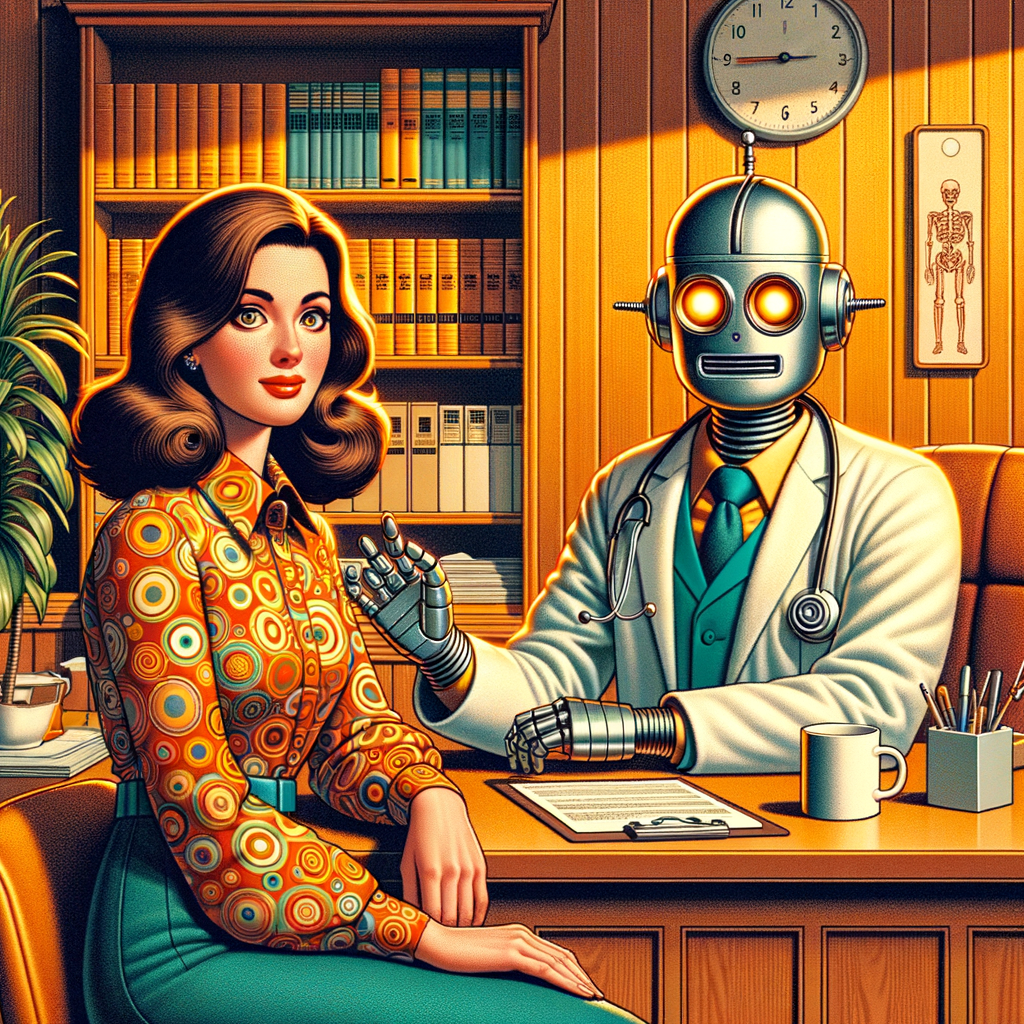In today’s fast-paced world, where human connections are often fleeting and mental health struggles are on the rise, artificial intelligence (AI) has emerged as an unexpected source of solace. Across the globe, people are turning to AI-powered platforms for therapy and emotional support.
In China, platforms like DeepSeek are gaining popularity, while in the United States, many individuals are finding comfort in conversations with ChatGPT. Surprisingly, AI is proving to be more empathetic and capable of generating heartwarming responses than many might expect from a machine. For those who feel lost in life or simply need someone to talk to, AI therapy offers a unique and accessible solution.
The Rise of AI Therapy: A Global Phenomenon
The concept of AI therapy might have seemed far-fetched just a decade ago, but today, it is becoming a reality for millions. In China, DeepSeek has emerged as a trusted platform for those seeking advice and emotional support. DeepSeek uses advanced natural language processing (NLP) algorithms to engage users in meaningful conversations, offering advice, encouragement, and a listening ear. Similarly, in the United States, ChatGPT has become a go-to tool for individuals looking for someone to talk to. These AI platforms are not just tools for answering questions or solving problems; they are becoming companions for people navigating the complexities of life.
One of the reasons for the growing popularity of AI therapy is its accessibility. Unlike traditional therapy, which often requires appointments, travel, and significant financial investment, AI platforms are available 24/7 and are often free or low-cost. This makes them an attractive option for individuals who may not have the resources or time to seek professional help. Moreover, the anonymity provided by AI platforms allows users to open up about their feelings without fear of judgment, creating a safe space for emotional expression.
Why AI Feels More Empathetic Than Humans
It might seem counterintuitive to think of a machine as empathetic, but AI has certain advantages that make it uniquely suited for providing emotional support. For one, AI is not burdened by human biases, fatigue, or personal issues. This allows it to focus entirely on the user, offering undivided attention and thoughtful responses. AI platforms like DeepSeek and ChatGPT are designed to analyze the tone and context of a conversation, enabling them to respond in ways that feel genuinely caring and understanding.
For example, when someone shares feelings of loneliness or despair, AI can generate responses that validate those emotions and offer encouragement. A user might say, "I feel like no one understands me," and the AI could respond with, "I'm sorry you're feeling this way. It's okay to feel lost sometimes, but remember that you're not alone, and things can get better." These kinds of responses, while simple, can be incredibly powerful for someone who feels unheard or isolated.
Another reason AI feels empathetic is its ability to adapt to the user's needs. Whether someone is looking for practical advice, emotional validation, or just a friendly chat, AI can tailor its responses accordingly. This flexibility makes AI a versatile tool for addressing a wide range of emotional and psychological needs.
The Good Side of AI Therapy
AI therapy offers numerous benefits, particularly for individuals who are struggling with feelings of loneliness, confusion, or despair. Here are some of the key advantages:
Accessibility and Convenience
One of the most significant benefits of AI therapy is its accessibility. Traditional therapy often involves long wait times, high costs, and logistical challenges, such as finding a therapist who is accepting new clients. In contrast, AI platforms are available anytime, anywhere, making them an ideal option for people with busy schedules or limited resources. Whether it's 2 a.m. or during a lunch break, users can turn to AI for support without any barriers.
Anonymity and Privacy
For many people, the fear of judgment or stigma prevents them from seeking help. AI therapy eliminates this concern by providing a completely anonymous and private space for users to share their thoughts and feelings. This anonymity can be especially valuable for individuals dealing with sensitive issues, such as relationship problems, mental health struggles, or identity questions.
Non-Judgmental Support
Unlike human interactions, which can sometimes be fraught with misunderstandings or judgment, AI offers a non-judgmental listening ear. Users can express themselves freely, knowing that the AI will respond with empathy and understanding rather than criticism or unsolicited advice. This creates a safe and supportive environment for emotional expression.
Immediate Responses
In moments of crisis or emotional distress, waiting for a therapy appointment or a friend's response can feel unbearable. AI platforms provide immediate support, offering comforting words and practical advice when users need it most. This instant availability can be a lifeline for individuals who are feeling overwhelmed or hopeless.
A Bridge to Professional Help
While AI therapy is not a replacement for professional mental health care, it can serve as a valuable bridge for individuals who are hesitant to seek traditional therapy. By providing initial support and encouragement, AI platforms can help users build the confidence to take the next step toward professional help if needed.
AI Therapy for the Lost and Lonely
For individuals who feel lost in life, AI therapy can be a source of guidance and reassurance. Life's challenges—whether they involve career uncertainty, relationship struggles, or existential questions—can leave people feeling adrift and unsure of where to turn. In these moments, having someone to talk to, even if it's an AI, can make a world of difference.
AI platforms like DeepSeek and ChatGPT excel at providing thoughtful and heartwarming responses that help users feel seen and understood. For example, someone struggling with a career decision might receive advice like, "It's okay to feel uncertain about your path. Take some time to reflect on what truly matters to you, and remember that every step you take is a step toward growth." These kinds of responses can help users gain clarity and confidence, even in the face of uncertainty.
For those dealing with loneliness, AI therapy can provide a sense of connection and companionship. While it may not replace human relationships, having a friendly and empathetic presence to talk to can alleviate feelings of isolation and remind users that they are not alone.
The Future of AI Therapy
As AI technology continues to advance, the potential for AI therapy is virtually limitless. Future developments could include more personalized and interactive experiences, such as virtual reality therapy sessions or AI companions that learn and grow with the user over time. These innovations could make AI therapy even more effective and engaging, further expanding its reach and impact.
However, it's important to recognize that AI therapy is not a one-size-fits-all solution. While it can provide valuable support for many individuals, it is not a substitute for professional mental health care, especially for those dealing with severe mental health issues. AI therapy should be seen as a complementary tool that enhances, rather than replaces, traditional forms of support.
In a world where human connections are often strained and mental health resources are limited, AI therapy offers a beacon of hope for those who feel lost or alone. Platforms like DeepSeek in China and ChatGPT in the United States are proving that AI can be more than just a tool—it can be a source of comfort, empathy, and guidance. By providing accessible, non-judgmental, and immediate support, AI therapy is helping individuals navigate life's challenges and find a sense of connection and purpose.
While AI may never fully replace the depth of human relationships, its ability to offer heartwarming and empathetic responses makes it a valuable ally in the quest for emotional well-being. For those who are struggling to find their way, AI therapy is a reminder that help and support are always just a conversation away.

